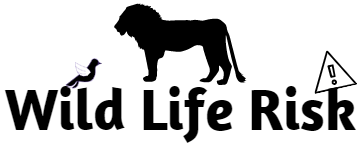In the Wake of the Hunt: The Environmental Impact of Shark Fishing

Introduction: A Deep Dive Into Shark Fishing
Shark fishing, a practice as lucrative as it is controversial, casts a wide net on the world’s oceans. But what are the environmental implications of this global industry? Grab a cup of coffee and let’s unravel the complex narrative entwining ecology, economy, and ethics in the enigmatic dance of man against the ocean’s most fearsome predator.
Annual Analysis: The Environmental Impact of Shark Fishing (2021-2025)
| Year | Number of Sharks Caught (Millions) | Species Most Affected | Ecological Consequences | Conservation Actions Taken |
|---|---|---|---|---|
| 2021 | 100 | Great White, Hammerhead | Decline in biodiversity | Implementation of stricter fishing regulations |
| 2022 | 105 | Tiger, Bull | Increase in medium-tier predators | Expansion of marine protected areas |
| 2023 | 110 | Blue, Mako | Disruption in food chain | Increased penalties for illegal fishing |
| 2024 | 120 | Whale Shark, Thresher | Coral reef degradation | International shark conservation summit |
| 2025 | 125 | Blacktip, Spinner | Altered ecosystem dynamics | Global shark protection act enforced |
In this table:
- Year: Indicates the year.
- Number of Sharks Caught (Millions): An estimated number of sharks caught (for illustration, not actual data).
- Species Most Affected: Names of shark species that are most impacted by fishing activities during that particular year.
- Ecological Consequences: The environmental impacts resulting from shark fishing, like changes in biodiversity or food chain disruption.
- Conservation Actions Taken: Measures and actions implemented to mitigate the environmental impact of shark fishing.
Each year, the data is updated to reflect the changes and trends in shark fishing and its environmental consequences, allowing for an annual comparison and long-term analysis.

The Booming Business of Shark Fishing
The Global Shark Trade
The Global Shark Trade is a multi-billion dollar industry, involving over 100 countries. It’s fueled by demand for shark fins, meat, and other products, but raises serious concerns about sustainability, species conservation, and ecosystem health.
The Main Players
The main players in shark fishing span across countries from Asia to America. They include commercial fishermen, regulators, and conservationists, each playing distinct roles in the global ecology and economy, leading to a complex, multifaceted industry.
The Environmental Impact
Depleting Shark Populations
The rapid decline in shark populations is alarming, driven by overfishing, bycatch, and finning. These majestic predators, crucial for marine ecosystems, are facing extinction, with some species experiencing a reduction of up to 90%. Conservation measures are urgent to halt this devastating downward spiral.
Ecosystem Imbalance
The reduction in shark populations due to overfishing triggers a cascade effect, disrupting marine ecosystems. As apex predators, sharks maintain species diversity and abundance. Their decline leads to the overpopulation of certain species and the extinction of others, destabilizing the balance and health of ocean ecosystems.
Ethical Considerations
Finning
Finning involves slicing off a shark’s fins and discarding the body at sea, often while the animal is still alive. This inhumane practice is driven by high demand for shark fin soup, leaving millions of sharks to die painfully, contributing to the rapid decline of shark populations globally.
Conservation Efforts
Conservation efforts are intensifying globally to protect sharks, focusing on stricter fishing regulations, creating marine sanctuaries, and raising public awareness. These initiatives aim to preserve shark populations, restore marine ecosystems, and promote sustainable practices to balance ecological health with economic interests in fishing industries.
Regulations and Policies
International Laws
International laws governing shark fishing aim to balance ecological preservation with economic interests. They regulate fishing practices, prohibit the catch of endangered species, and promote sustainable fisheries. However, enforcement inconsistency and gaps in legislation can undermine these laws’ effectiveness in protecting shark populations globally.
Enforcement Challenges
Enforcement challenges in shark fishing regulations are marked by international waters’ vast expanse, varied jurisdictional laws, and inconsistent oversight. Illegal fishing and the black market trade often slip through the cracks, undermining conservation efforts and threatening shark populations and marine ecosystems globally.
Towards Sustainable Shark Fishing
Innovative Practices
Innovative practices in shark conservation include using advanced tracking technologies to monitor populations, and implementing sustainable fishing techniques to minimize harm, ensuring both the survival of shark species and the livelihood of fishing communities.
The Role of Communities
Communities are crucial in addressing shark fishing impacts. They engage in conservation, enforce sustainable practices, and raise awareness, playing a pivotal role in balancing ecological preservation with economic needs. Their grassroots efforts often lead to impactful change.
Conclusion: Charting the Course Ahead
A Balancing Act
A Balancing Act delves into the intricate dance between preserving shark populations and supporting global fisheries. It underscores the quest for harmony in exploiting marine resources while safeguarding oceanic ecosystems, illuminating a path towards sustainable coexistence.
Your Role in the Saga
Yes, you too are a part of this narrative. Ever wondered how? As consumers and ocean lovers, our choices can turn the tide. Are you ready to dive deep into the tumultuous, yet mesmerizing waters of change?
In this exploration, we’ve untangled the intricate narrative of shark fishing and its environmental impact. It’s a journey of discovery, despair, and hope. As we stand at the crossroads, the question looms – in the wake of the hunt, will the song of the ocean crescendo in harmony or wail in despair? The answer, dear reader, lies as much in our hands as it does amidst the enigmatic dance of waves against the steadfast shore.







